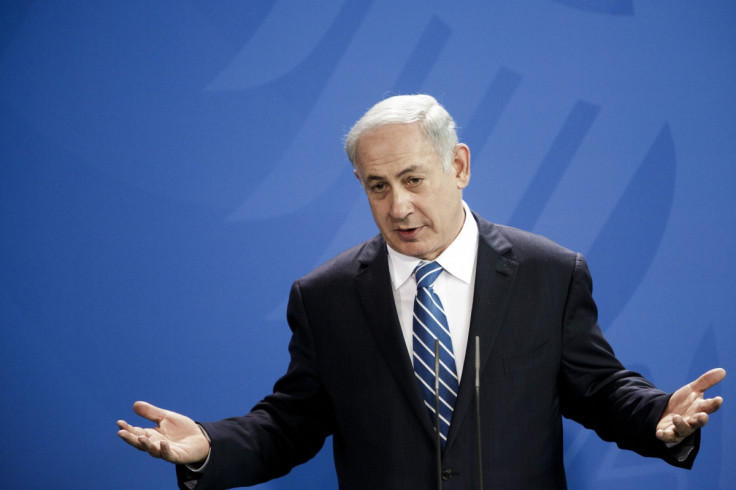Israel: Why Benjamin Netanyahu might just be the smartest politician of his age

When Israel's brash leader Benjamin Netanyahu won re-election in March 2015 few predicted that the shaky coalition he cobbled together would last six months, let alone a year. But Netanyahu – known as 'Bibi' to friends and foes alike – has once again weathered the storm.
And what a storm it has been. Netanyahu has seen the world conclude an historic deal with Iran despite his very public opposition to it and a spate of bloody terrorist attacks dubbed the 'knife intifada' that has left dozens of Israelis dead and led to riots and killings in the Palestinian West Bank.
Even as momentum builds behind the boycott, divestment and sanctions (BDS) movement, including the path to Palestinian statehood – with France recently voting to recognise a Palestinian state –Netanyahu has managed to avoid any meaningful dialogue with the Palestinian leadership.
Meanwhile opposition parties such as the Zionist Union of Labour leader Isaac Herzog are in disarray, with a recent poll for Israel's Channel 1 news estimating that the coalition would win just 15 seats in the 140-seat Knesset if elections were held today. Netanyahu's personal approval ratings dwarfed those of his rivals, with 26% of Israelis saying he was the right man to be leader compared to just 11% for Yair Lapid, his closest rival.
Ironically it has been Herzog's disastrous attempt to attack Netanyahu from the right, said Hugh Lovatt, Israel and Palestine coordinator at the European Council for Foreign Relations, that has damaged the Zionist Union bloc: "If you're Israeli and you want to vote for someone on their security credentials, you do not vote for someone who is trying to emulate someone else: you vote for Netanyahu – the real thing," he said.
But also integral to Netanyahu's relative success in 2015 and 2016 has been that he remains the master of political manoeuvring. In January, with speculation growing that populist members of his Likud Party such as Gideon Saar and Jerusalem mayor Nir Barkat were planning to challenge him for the leadership, Netanyahu blind-sided his rivals by calling the leadership election early. As a result, he was re-elected unopposed.
Netanyahu has played those within his coalition – mostly from radical right-wing parties – against each other and managed to weather high-profile spats with US President Barack Obama, whom he reportedly refused to travel to Washington to see this month. US Vice President Joe Biden was in Israel this week to negotiate the multi-million dollar military aid package, seen as something of a sweetener for the Israelis after the Iran deal.
And despite the fact that 174 Palestinians and 28 Israelis have been killed both in stabbing attacks and in response to riots in the West Bank, Netanyahu has resisted calls from the radical right to re-occupy Palestinian cities, judging that it would likely make a bad situation worse. He only recently approved an expansion of the Separation Wall that was begun in 2007 and dissects the outskirts of Jerusalem and Bethlehem.
In this, Netanyahu has at least been consistent. Even in the war that claimed some 2,100 Palestinian lives and devastated Gaza in the summer of 2014, Netanyahu only reluctantly committed ground troops to the strip, fearing Israeli casualties. This was despite calls for him to re-occupy Gaza, which Israel exited in 2006 and is now governed by Palestinian militant group Hamas.
"You see the same dynamic now. He doesn't want to get sucked into something in the West Bank which one would imagine would make things far worse. He likes to play the role of responsible adult. He has people yelling to his left and right and he can position himself between the two," Lovatt said.
Netanyahu is only 66 and will have his eye on a significant anniversary in 2019, when his tenure in office will surpass that of David Ben Gurion. Ben Gurion served two terms as Israeli leader – from 1948 to 1954 and then 1955 to 1963 – a total of 14 years. Netanyahu, who has been elected leader three times, most recently in 2015, has served nearly 11 years in total – only three years short of Israel's founding prime minister.
The two leaders are very much chalk and cheese, Ben Gurion was a largely non-religious left-winger while Netanyahu has made his career as a right-wing firebrand, but the ascendency and staying power of Bibi is not only as a result of his political nous. More than 20 years after the Oslo Accords and as relations between Israel and the Palestinians reaches its lowest ebb since the second intifada, Israel as a whole has swung to the right.
Ever since he first ascended to power in the wake of the assassination of Yitzak Rabin, Netanyahu has managed to harness the power of the political and religious right in Israel, playing up concerns about security and, when that failed, adopting all out Donald Trump-style racial scaremongering. But as the death toll steadily climbs on both sides of the Israel-Palestine conflict, such tactics will not last forever.
Obama this week described Netanyahu, accurately, as "too fearful and politically paralysed" to reach a peace deal, a claim that will resonate with many Israelis tired of the bloodshed and aware that four million Palestinians are not simply going to disappear. If Bibi continues to avoid re-starting the peace process he may be able to best Ben Gurion's record rule – but he will be no closer to securing even an ounce of the late leader's legacy.
© Copyright IBTimes 2025. All rights reserved.





















